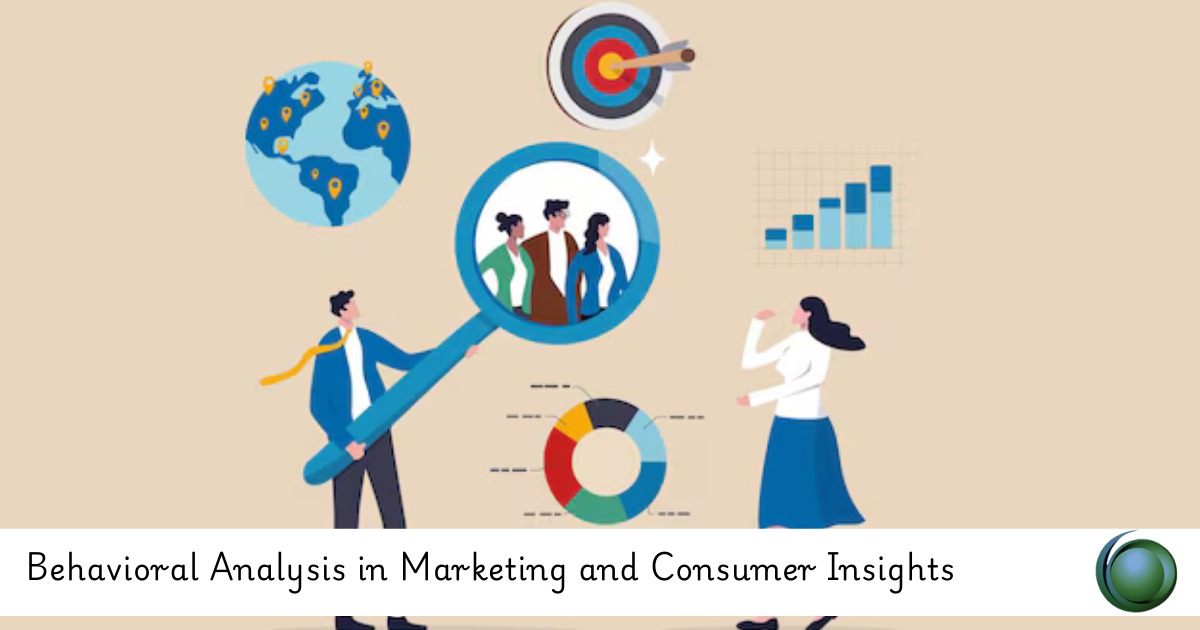Description
Introduction
Behavioral analysis in marketing is the practice of examining consumer actions, preferences, and trends to gain insights that inform marketing strategies. By leveraging behavioral data, companies can understand their customers’ needs and desires, ultimately leading to more personalized and effective marketing campaigns. This approach allows marketers to predict consumer behavior, segment audiences, and optimize the customer journey. The key to successful behavioral analysis in marketing is gathering actionable insights from data points such as browsing history, purchasing patterns, and interaction with ads or content.
Prerequisites
Participants should have:
- A foundational understanding of marketing principles and consumer behavior.
- Basic knowledge of data analysis techniques and marketing analytics tools.
- Familiarity with customer journey mapping and segmentation.
- An understanding of the role of digital marketing channels (e.g., social media, email, and websites) in gathering behavioral data.
- Exposure to concepts such as A/B testing, customer profiling, and personalization strategies.
Table of Contents
- Introduction to Behavioral Analysis in Marketing
1.1 What is Behavioral Analysis?
1.2 The Role of Behavioral Insights in Modern Marketing
1.3 Key Areas of Behavioral Analysis in Marketing - Sources of Behavioral Data for Marketing Insights
2.1 Website Interactions and Clickstream Data
2.2 Social Media Behavior and Engagement
2.3 Purchase History and Transaction Data
2.4 Mobile App Behavior and Usage Patterns
2.5 Email Interactions and Campaign Engagement - Consumer Segmentation Based on Behavior
3.1 Traditional vs. Behavioral Segmentation
3.2 Creating Behavioral Personas
3.3 Segmenting Customers by Engagement and Interests
3.4 Dynamic Segmentation and Personalization - Behavioral Data Analysis Techniques
4.1 Descriptive Analytics for Understanding Past Behavior
4.2 Predictive Analytics for Forecasting Consumer Behavior
4.3 Prescriptive Analytics for Optimizing Marketing Actions
4.4 Using Machine Learning for Consumer Behavior Predictions - Personalization and Targeting Through Behavioral Analysis
5.1 The Power of Personalization in Marketing
5.2 Delivering Relevant Content and Recommendations
5.3 Dynamic Email and Ad Targeting(Ref: Data-Driven Behavioral Analysis)
5.4 Case Study: Personalization in E-commerce - Optimizing the Customer Journey Using Behavioral Insights
6.1 Mapping the Customer Journey and Touchpoints
6.2 Identifying Friction Points and Opportunities for Improvement
6.3 Behavioral Triggers and Engagement Strategies
6.4 A/B Testing and Experimentation - Enhancing Customer Retention with Behavioral Data
7.1 Identifying At-Risk Customers Through Behavioral Analysis
7.2 Using Behavioral Insights to Improve Customer Experience
7.3 Loyalty Programs and Retargeting Campaigns
7.4 Reducing Churn with Proactive Engagement - Behavioral Analysis for Marketing Campaign Effectiveness
8.1 Measuring Campaign Success with Behavioral Metrics
8.2 Tracking Conversion Rates and Engagement Levels
8.3 Real-Time Analytics for Campaign Optimization
8.4 Attribution Modeling in Digital Marketing - Ethics and Privacy in Behavioral Marketing
9.1 Collecting and Using Consumer Data Responsibly
9.2 Data Privacy Regulations (GDPR, CCPA, etc.)
9.3 Consumer Consent and Transparency in Marketing Practices
9.4 Ethical Considerations in Behavioral Targeting - Emerging Trends in Behavioral Analysis for Marketing
10.1 AI and Machine Learning in Marketing Automation
10.2 Voice Search, IoT, and the Future of Behavioral Data
10.3 The Rise of Hyper-Personalization
10.4 Blockchain and Data Privacy Innovations - Conclusion
11.1 Key Takeaways from Behavioral Analysis in Marketing
11.2 The Impact of Data-Driven Marketing on Consumer Behavior
11.3 The Future of Behavioral Insights in Marketing Strategy
Conclusion
Behavioral analysis is transforming how marketers understand and engage with consumers. By effectively utilizing behavioral data, companies can create more personalized, relevant, and timely marketing campaigns that resonate with their target audience. From enhancing customer retention to optimizing the customer journey, behavioral insights are essential for driving marketing success. As technology and data collection methods continue to evolve, marketers will have even greater opportunities to harness behavioral analysis for deeper insights, improved customer experiences, and ultimately, increased brand loyalty and revenue.







Reviews
There are no reviews yet.